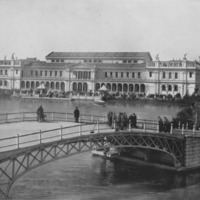Board of Lady Managers
The Columbian Exposition had a Board of Lady Managers sanctioned by Congress to control how women would be involved in the fair. Such a powerful platform became contentious between various groups of women seeking to push their views of womanhood to be represented at the Exposition.
The Conservative Women's Auxiliary
This group of women consisted of wealthy and prominent Chicago women who were involved with the city's philanthropic organizations. While they generally advocated for the expansion of women's rights, they did so using justification within the confines of femininity. They believed that women should not be confined to domestic duties, but at the same time their pursuits should remain womanly and in line with feminine virtues. They encouraged women to be active in reform movements, education, and art. Their goal for the Exposition was to construct a Woman's Pavilion to seperate women's contributions. [1]
The Isabella Association
These women were radical in the sense that they advocated for women to escape the confines of domesticated feminine virtues altogether. They were mainly suffragists who preferred to fight for the vote for women rather than reform movements. They tended to be professional women and were found in other cities outside of Chicago. They got their name from their desire to recognize Queen Isabella for her contributions to the founding of the New World. They were opposed to the creation of a separate Woman's Pavilion at the Exposition, instead pushing for women's works to be included throughout the Exposition - right alongside men's. [2]
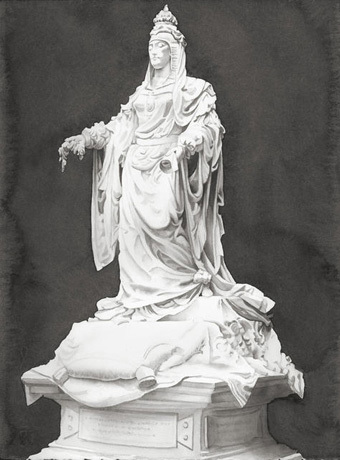
A statue of Queen Isabella created by Harriet Hosmer.
Image courtesy of artnet.com.
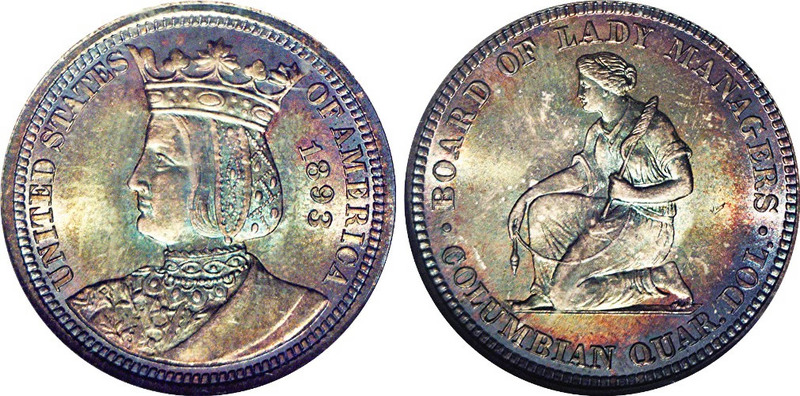
A commemorative coin from the Columbian Exposition, featuring a depiction of Queen Isabella. These momentos did not sell nearly as well as their counterparts with Christopher Columbus on them.
Image courtesy of coincommunity.com.
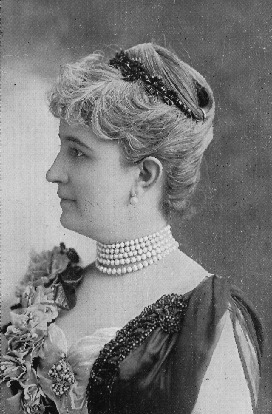
Bertha Palmer, the President of the Board of Lady Managers.
Image courtesy of the University of Pennsylvania.
Bertha Palmer was appointed the President of the Board of Lady Managers. While she was not officially a member of the Women's Auxiliary, her southern roots and prominence in Chicago made her views essentially identical to theirs. She opposed militarnt suffrage, and did everything in her power to bar the Isabellas from achieving their aims with the Exposition. She wanted to expand rights for women, but sought to do so only by expanding the normative ideals of feminine standards.
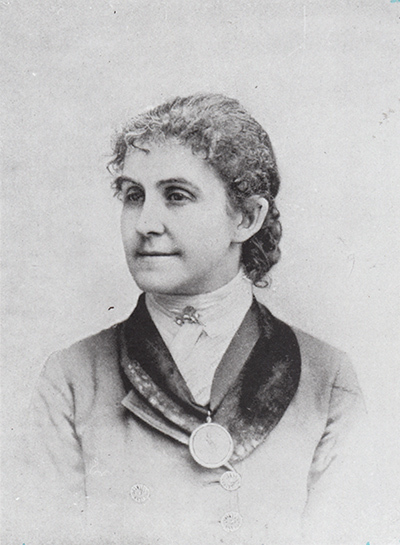
Phoebe Couzins, Secretary of the Board of Lady Managers.
Image courtesy of the University of Pennsylvania.
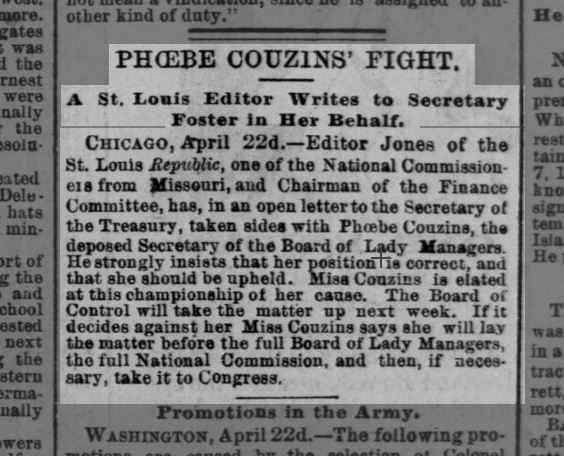
A newspaper clipping detailing the feud between Phoebe Couzins and Bertha Palmer from Daily Alta California, 23 April 1891.
Image courtesy of California Digital Newspaper Collection.
Phoebe Couzins was appointed secretary of the Board of Lady Managers, one of the few members of the Isabella Association to do so. Due to her differing mentality regarding women's role in the Expostion, she clashed with Palmer and the rest of the Board of Lady Managers. She ended up being removed from her position and then sued in retaliation. Although she did not win her lawsuit, the entire ordeal was quite a blow to Palmer, who was trying to give the public the illusion that the Board of Lady Managers was a cohesive unit with similar beliefs. [3][4][5]
[1] Lauren Maxwell. “Constructions of Femininity”, 8-9.
[2] Jeanne Weimann. The Fair Women, 28.
[3] Lauren Maxwell. “Constructions of Femininity”, 17.
[4] Jeanne Weimann. The Fair Women, 101.
[5] Lauren Maxwell. “Constructions of Femininity”, 22.
